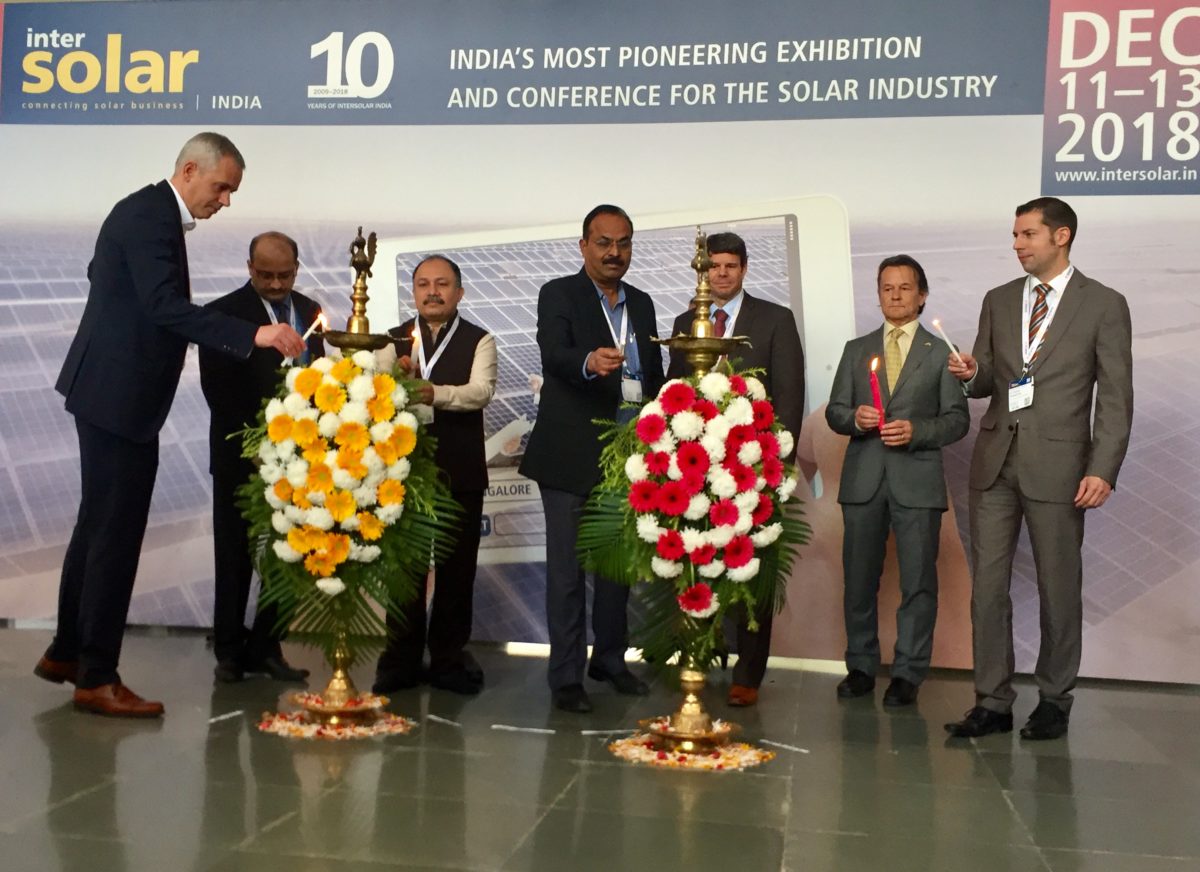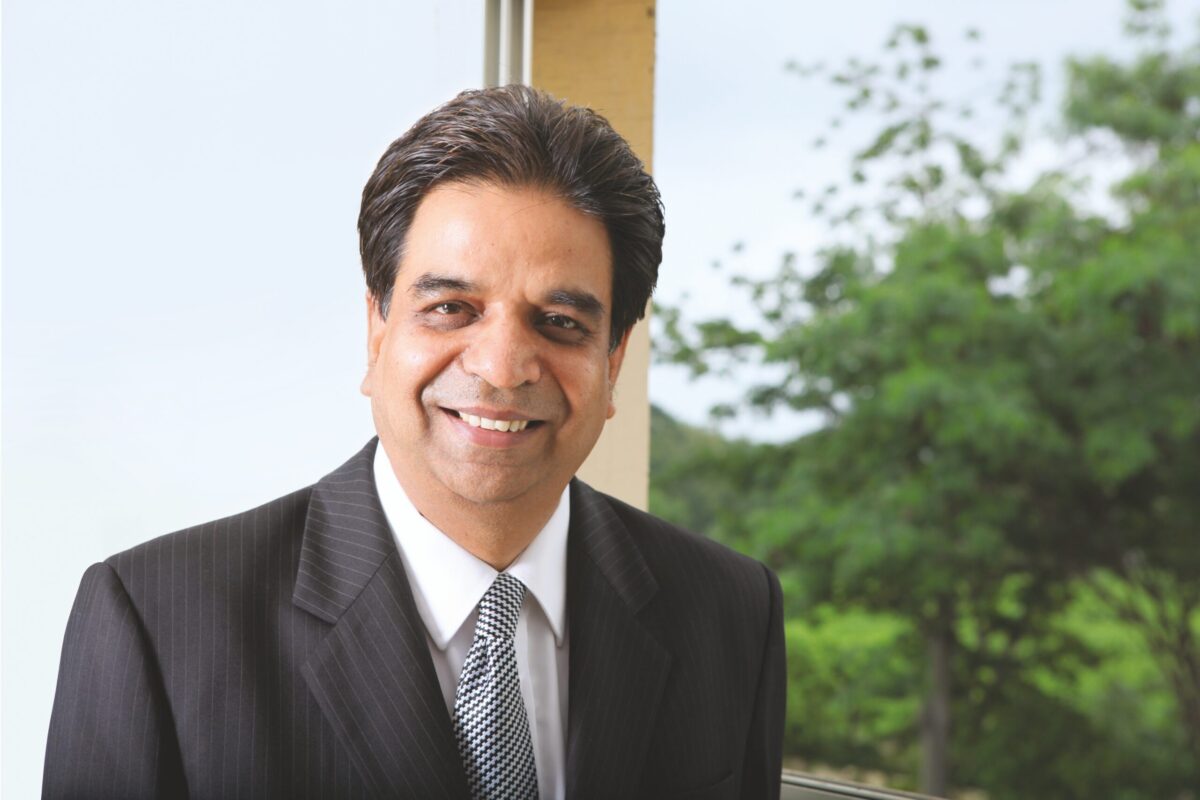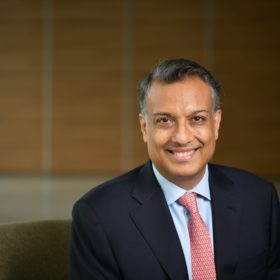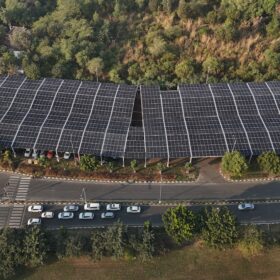Inaugurating the 10th Intersolar India, where over 170 expert speakers and 1,000 conference delegates are set to participate in nearly 35 sessions and workshops, chief guest HM Revanna Gowda, managing director, Karnataka Udyoga Mitra, expressed hope that the three day event will invigorate the Indian solar industry.
He went on to praise the impressive progress Karnataka is making both in terms of solar and electric vehicles (EVs). “Karnataka is emerging as the role model for building a conducive environment for industries, specially solar and EVs. Not surprisingly, Karnataka attracted Rs 83,000 crore investment in 2017-2018, the largest chunk for any Indian state and accounting for 23% of India’s total investment,” Revanna Gowda said.
Karnataka was the first state to set up a 3 MW solar project back in 2009, which is still operational. It is also home to the world’s largest solar project, the 2 GW Pavagada Solar Park.
Currently, the state’s installed solar capacity tops 5 GW, while wind has reached 4.7 GW. Under the new solar policy, it has also mandated the discoms to purchase 6 GW.
Furthermore, Karnataka is the first state to announce a subsidy for electric vehicles (EVs). Overall, it aims to attract Rs 31,000 crore in investment for EVs and provide employment to 55,000 people.
“As a state, we are solar surplus right now and do not intend to float any large tenders in 2019. Karnataka’s solar success stems from the fact that it has been very steady in its approach towards solar. The incentives and the policies have been in tune with the needs and the mood of the sector” Revanna Gowda told pv magazine.
Siddalinga Poojar, Joint Director, Karnataka’s Directorate of Industry & Commerce went on to say, “Today, 168 countries have demand for solar equipment and India is highly demand-driven. Karnataka is toeing that line and has identified nine sectors to be developed in nine districts.
“Kalburgi has been chosen to become the state’s new solar hub. The sector requires special incentives and skills and the government is moving very aggressively to meet the challenges.”
Also speaking to pv magazine, MM Mani, Minister for Power, Government of Kerala, detailed his state’s solar vision. “Right now, we only have an installed capacity of 100 MW but by the end of 2019, we plan to install 1,000 MW, of which 500 MW will be rooftop and 200 MW floating solar. Rooftop is the best option for Kerala, because there is not much free-land and land acquisition is a tedious process,” he added.
Phillippe Muller, Head of Cleantech, Swiss Federal Office of Energy also addressed the audience at the inauguration of the event. He said that the need of the hour is to increase energy efficiency and renewables, and to phase out nuclear energy.
Solar energy is the ideal technology to drive away the ills of carbon emissions both in housing, industrial production and mobility, he said, adding that to reach that goal, storage is extremely important.
“Switzerland has very strict energy and water regulations and we hope to work together with India to push power transition to clean energy,” Muller said.
Emphasizing the key, global role of Intersolar in facilitating the solar industry for 27 years, Florian Wessendrof, managing director, Solar Promotion International, said InterSolar India is the most pioneering solar meet in the country. “The way forward for the solar industry is to deploy better and more storage,” he told pv magazine.
Watch out for more coverage from Intersolar India, which is on from December 11-13.
This content is protected by copyright and may not be reused. If you want to cooperate with us and would like to reuse some of our content, please contact: editors@pv-magazine.com.








By submitting this form you agree to pv magazine using your data for the purposes of publishing your comment.
Your personal data will only be disclosed or otherwise transmitted to third parties for the purposes of spam filtering or if this is necessary for technical maintenance of the website. Any other transfer to third parties will not take place unless this is justified on the basis of applicable data protection regulations or if pv magazine is legally obliged to do so.
You may revoke this consent at any time with effect for the future, in which case your personal data will be deleted immediately. Otherwise, your data will be deleted if pv magazine has processed your request or the purpose of data storage is fulfilled.
Further information on data privacy can be found in our Data Protection Policy.